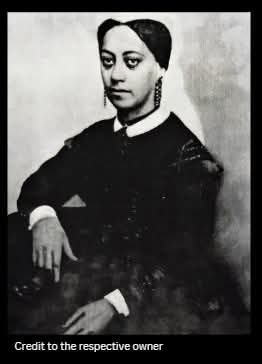In the 1850s, a young Black woman named Mary Ellen Pleasant swept floors and poured tea in the grand mansions of San Francisco. To her employers, she was invisible. But she was listening.
As wealthy men whispered about stocks, banks, and property deals, Pleasant quietly absorbed every detail. Then she started investing for herself.
She bought laundries, boarding houses, restaurants, dairies—even shares in banks. When laws or prejudice tried to block her way, she worked through her white business partner, Thomas Bell, who held many investments in his name.
By the end of the Gold Rush, Mary Ellen Pleasant had turned overheard secrets into impressive wealth. In today’s money, her fortune would be worth over $30 million.
But she wasn’t just building wealth. She was building change.
She secretly funded the Underground Railroad. She supported John Brown’s raid on Harpers Ferry. She fought—and won—a lawsuit to desegregate San Francisco’s streetcars.
Her power made people uneasy. Newspapers smeared her. Rumors labeled her a “voodoo queen” or “dangerous radical.” But Pleasant never wavered.
“I’d rather be a corpse than a coward,” she declared. And she lived by those words.
Mary Ellen Pleasant turned silence into strategy—and used her fortune to fight for freedom. A woman erased from textbooks, but etched forever in history.
